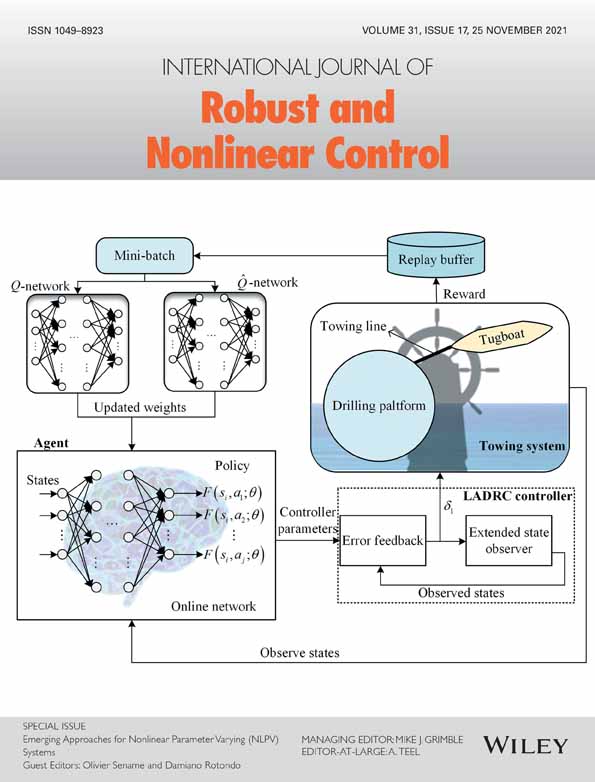Economic model predictive control of nonlinear systems using a linear parameter varying approach
Abstract
This article proposes an economic model predictive control (EMPC) approach for linear parameter varying (LPV) systems. An efficient implementation of the associated MPC optimization problem is introduced based on transforming the LPV model into a linear time-varying one by using an estimation of the scheduling variables along the prediction horizon. This estimation is based on the optimal states/inputs determined from the solution of the previous optimization problem while running the receding horizon strategy. Using this approach, the solution of the proposed LPV-based EMPC scheme would be possible by solving a series of quadratic programming problems at each time instant. This approach allows reducing the computational burden compared with the solution of a nonlinear optimization problem that would result naturally from the LPV-based formulation. The stability of the proposed approach is guaranteed by forcing the terminal state to converge towards the optimal equilibrium/working point of the system. Moreover, the terminal constraint is relaxed by using a constraint set around the terminal state instead of a constraint value and adding a penalty on the terminal state into the cost function. Besides, strict dissipativity is established as a sufficient condition to prove stability. Finally, the effectiveness of the LPV-based EMPC strategy is shown by controlling a small-scale pasteurization system in simulation. The comparison between the proposed control approach and standard MPC approaches is performed. Results show the advantages of the proposed LPV-based EMPC controller in terms of economic cost minimization.
CONFLICT OF INTEREST
The authors declare no conflict of interests.
Open Research
DATA AVAILABILITY STATEMENT
Data available on request from the authors.




